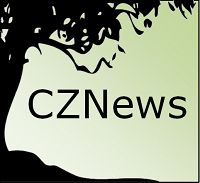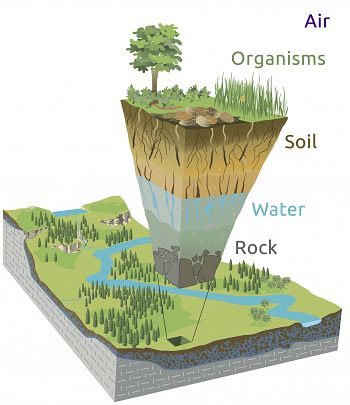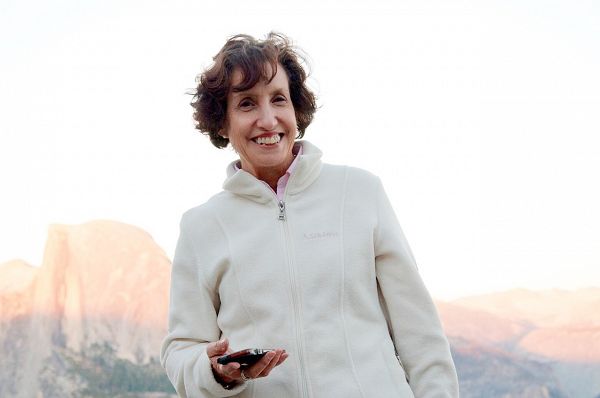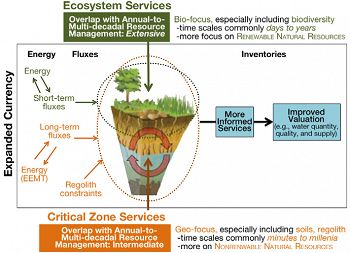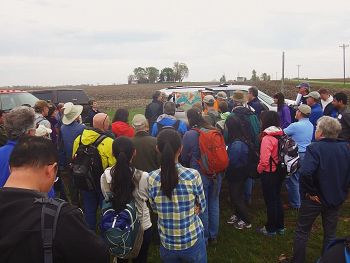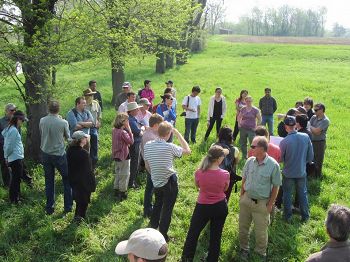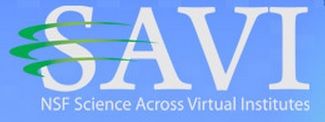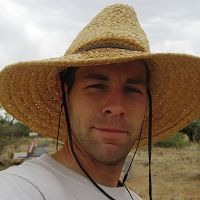CZNews: Summer 2015 is here!
Print Verison: CZNews - Summer 2015 (1 MB PDF)
Thank You Enriqueta!
Enriqueta Barrera, National Science Foundation
The National CZO Program would like to express our sincerest gratitude to Enriqueta Barrera for her >12 years of dedicated service to the development and support of CZ science and CZOs in the U.S. and internationally. Enriqueta will remain engaged in the development of CZ science primarily in the international realm, but her primary responsibility will be continued oversight of the Geobiology and Low-Temperature Geochemistry Program in the Division of Earth Sciences, Geosciences Directorate, at the National Science Foundation.
Enriqueta was instrumental in the foundation and growth of the U.S Critical Zone Observatory program beginning in 2003 when she approved a funding request for the first Weathering System Science Workshop. She was the driving force at NSF behind the funding, collaboration and implementation of the many workshops that followed, including the NSF-supported 2005 meeting “Frontiers in Exploration of the Critical Zone” at the University of Delaware— which catalyzed the international community of CZ scientists. These workshops and Enriqueta’s efforts culminated in the initiation of the NSF CZO program in 2007. With her encouragement and support, 9 NSF-funded observatories and a national office have now been established— we would not be here if not for her grand vision, effort and support. Thanks again Enriqueta!
"There once was a PO named Enriqueta
Who worked hard to make CZ science much betta
We thank her with our heart
She was with us from the start
And we miss her but we’re still going a-headda"
— Sue Brantley & Suzanne Anderson
The following letter was sent to Enriqueta from Gordon Grant, CZO Steering Committee chair, on behalf of the committee in recognition of her service to, and guidance and leadership of, the development, implementation and growth of the CZO network:
Dear Enriqueta:
On behalf of the Science Steering Committee of the Critical Zone Observatory program, we would like to extend our deep appreciation for all of the work you have done over many years in support of the CZO program. Quite simply, the CZOs would not be where they are today without you. You were there at the inception and helped the program get established and grow at a time when many other programs were shrinking. This is a clear testimony to your ability to articulate the need for Critical Zone science in general, and a robust Observatory network as a foundation for that science in particular. Your leadership during times of transition within both the CZO program and NSF kept the program moving forward with momentum. Moreover, your efforts to forge international linkages and dialogue with CZOs in Europe, Asia, and South America has advanced global CZO science and opened new opportunities for US scientists to engage with the broader CZ community. We have very much enjoyed working with you, and look forward to continued interactions as the CZO program evolves in the future.
2015 Events
- CZO REU/RET Summer Program at Shale Hills CZO & Stroud Water Research Center
2015 Workshops:
- CZ Resilience (UNH): June 13 - 14
- Deep CZ Salon: June 14 - 18
- Concentration-discharge relations (UNH): July 21 - 23
- LTER/CZO working group at LTER triennial: August 30 - September 2
- Tree Workshop (PSU): September 9 - 11
- Biogeochemistry (UCRiverside): September 28 - 29
- Critical Zone Science, Sustainability, and Services in a Changing World (Purdue): October 22 - 24
- Microbial ecology (ArgonneNL): November 16 - 18
- International CZOs at AGU: December 13 or 14 (TBA)
CZO Spotlight: CZO Spotlight: Critical Zone Services
Fig. 1. Critical zone services provide context, constraints, and currency that enable more effective management and valuation of ecosystem services (adapted from MEA, 2005).
Catalina-Jemez CZO investigators (Field J.P., et al., 2015) published Critical Zone Services: Expanding Context, Constraints, and Currency beyond Ecosystem Services in the January issue of Vadose Zone Journal. The authors point out that critical zone processes are often not included in existing frameworks for the evaluation of ecosystem services, though they support and/or control many ecosystem processes and consequently the supply of products that benefits society. They further argue that CZ processes, such as soil formation, would extend the scope of ecosystem services both spatially and temporally by addressing the coevolution of physical and biological systems that benefit society. The authors describe process constraints that limit the provision of services, as well as offer a potentially powerful currency for evaluation. Consideration of critical zone services will enable more effective environmental management in response to impacts of changing climate and land use, as well as a more comprehensive valuation of services.
IML CZO Site Visit
Intensively Managed Landscapes (IML) CZO hosted a site visit May 4-6, 2015 in Urbana-Champaign, Illinois for network researchers, the CZO Steering Committee and NSF. The visit began with a trip to IML’s glacial till drill site for the cross-site ‘Drill the Ridge’ campaign, followed by a look at field sites within the Sangamon River Basin. On the second day, guest speaker Anker Højberg of the Geological Survey of Denmark and Greenland (GEUS) presented on ‘TReNDS – Transport and Reduction of Nitrate in Danish Landscapes at various Scales’. Attendees then met to present, discuss and collaborate on topics related to cross-site science and measurements, data management and outreach. Working groups from the 2014 All-Hands Meeting also shared progress and final plans for upcoming summer and fall workshops. The visit wrapped up with an update from the CZO National Office, as well as guidance and recommendations from NSF and the Steering Committee.
SAVI: Science Across Virtual Institutes
The National Office’s SAVI project is well into its first year since NSF announced funding in August 2014. The project focuses on promoting interactions among researchers worldwide to develop cross-site science based on a common set of measurements. This effort will use funds to develop workshops, support graduate and post-doctoral research primarily on cross-CZO, common measurement-based projects, and further the development of web-based collaboration tools on czen.org. To promote collaboration in and out of the network towards common measurement-based CZ science, the project has implemented the following initiatives so far. Five SAVI-funded CZO workshops (described in last newsletter) occurring this summer will develop cross-site strategies using CZO data and infrastructure towards CZ research goals. The CZO SAVI Summer Interns Program 2015 is funding the travel and research expenses for three graduate student projects that involve cross-site science at U.S. CZOs. The CZO SAVI International Scholars Program supported eight U.S graduate students to attend a field workshop in Perth, Australia in February, and an additional four students to travel and work at CZ sites or laboratories overseas this summer and fall. SAVI is actively working to update and redesign czen.org to better serve the needs of the international CZ community and will launch a new site this July. The Critical Zone Exploration Network (www.czen.org) plays a central role in the international CZ community by providing an interdisciplinary collaborative workspace. This update will include new user features, functionality, security and a new version of ‘Site Seeker’, an interactive search tool to locate field sites based on site characteristics. Check it out!
CZNews
Receive the CZO Email Newsletter
Occasional email will include news, events, and other info related to Critical Zone Observatories.
We hate spam as much as you do, so your information will never be shared. You can unsubscribe at any time.
Enriqueta Barrera, National Science Foundation
Enriqueta Barrera
Fig. 1. Critical zone services provide context, constraints, and currency that enable more effective management and valuation of ecosystem services (adapted from MEA, 2005).
IML Site Visit 2015
IML Site Visit 2015
SAVI Banner
The Critical Zone. Illustration modified from Chorover, J., R. Kretzschmar, F. Garcia-Pichel, and D. L. Sparks. 2007. Soil biogeochemical processes in the critical zone. Elements 3, 321-326. (artwork by R. Kindlimann). Image Request.
News Category:
RESEARCH |
PUBLICATIONS |
PEOPLE |
EDUCATION/OUTREACH
People Involved
CZO
-
National, NATIONAL SCIENCE FOUNDATION
-
Catalina-Jemez, INVESTIGATOR
Related News
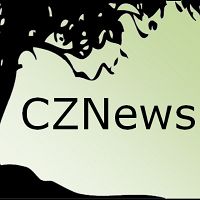
Introducing a CZO Newsletter: CZNews
30 Mar 2015 - The CZO National Office introduces a quarterly newsletter: CZNews!

CZNews: Summer 2016
24 Jul 2016 - CZO Newsletter CZNews: Summer 2016

CZNews: Spring 2016
13 Apr 2016 - The CZO National Office Newsletter CZNews: Spring 2016

CZNews: Winter 2016
11 Jan 2016 - The CZO National Office Newsletter CZNews: Winter 2016

CZNews: Fall 2015
01 Oct 2015 - The CZO National Office Newsletter CZNews: Fall 2015

CZNews: Summer 2015 is here!
01 Jul 2015 - Check out the summer edition of the CZO National Office's quarterly newsletter CZNews!
Explore Further
